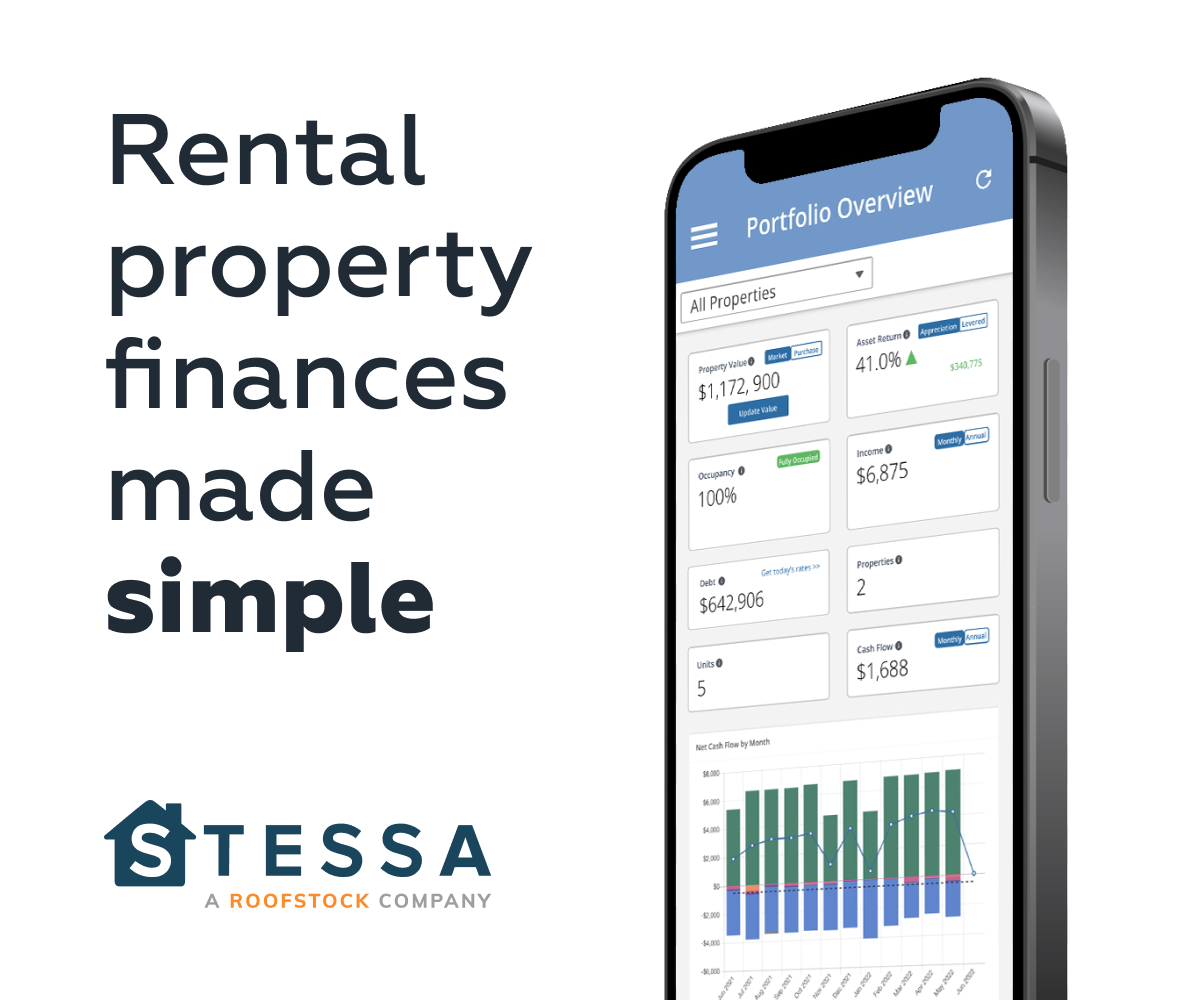
10 Red Flags in Real Estate Syndication Investing
Real estate syndication investing is a great way to get started in the world of commercial real estate. Real estate syndication enables passive investors to participate directly in the commercial real estate market without having to operate their investment properties on their own.
It’s important for passive syndication investors to be aware of the red flags and risks involved that can indicate a bad investment.
Real estate syndication risks are very real, but can be mitigated if you know what to look for and how to figure out which deals or sponsors to avoid. Hopefully being aware of these risks and red flags can help prevent you from losing money! In this blog post we will discuss 10 red flags to look for when evaluating syndicated real estate deals and sponsors.
1. Sponsors without a track record or experience.
One of the most important things to look for when evaluating a potential sponsor is whether or not they have experience or a track record. While it’s possible for new sponsors to be successful, it’s much more likely that an experienced sponsor will be able to navigate the complexities of commercial real estate investing. Sponsors without experience should be a red flag for investors.

Syndication sponsors should learn how to invest by using their own money, not yours. It would not be wise to receive medical treatment from a doctor who has never seen a patient. Be as careful with your money as you are with your health!
How to Find Syndication Sponsors
You can meet syndication sponsors in a variety of ways.
Networking events and conferences are a great way to meet potential sponsors in person. You can also attend webinars, listen to podcasts, or get referrals from people you know who have experience with syndication investing.
The most important thing is to do your homework and due diligence before investing with any sponsor. Meeting sponsors is only one part of the equation – make sure you are comfortable with their experience and track record before investing your money!
Just because you saw someone at an event, or heard them on a podcast, were referred to them, or were otherwise introduced doesn’t mean you should jump right in! Never skip out on due diligence.
Real Estate Syndicator Experience to Look For
This is a big topic, but there are a few factors that can help indicate that a sponsor has a successful track record of experience. I first look for the number of completed Full cycle deals to make sure they have previously delivered on the business plan.
From time to time sponsors will change asset classes as the market shifts, such as moving from multifamily to self storage, or from residential real estate to industrial real estate. I prefer to stick with sponsors who have experience in the exact asset class they’re pitching at that time. Next, we look at current number of units or assets under management.
2. Sponsors without presence in the market.
One of the most important things for sponsors to have is a presence in the market they’re looking to invest in. This allows them to have an understanding of the local dynamics, as well as access to potential deals. Access to and a network of local service providers is also critical.
Sponsors who are not already present in the market may find it difficult to execute deals, which could lead to lower returns for investors – if not total losses!
Presence Means Real Market Knowledge
Experience is a far better teacher than research. That principle applies to real estate market knowledge as much as anything else. Sponsors with an actual presence in a market will know more about the market dynamics, potential rental income, other rental properties (i.e. the competition) and so much more.
3. Unresponsive Investor Relations
Passive investors need to be able to trust that their sponsor is going to be responsive and communicative. The last thing an investor wants is for their money to go into a deal and not have any communication from the sponsor.
This can lead to frustration, missed opportunities, and a general feeling of being out of the loop.

Many sponsors prefer to communicate via email – Emails should be responded to properly in a reasonable timeframe.
Before you invest in a syndication, decide if the sponsor is responsive to your communications. Emails should be responded to properly in a reasonable timeframe. You’ll want to know this well before your money is invested! Syndicators should treat both their accredited investors and non-accredited investors with equal levels of care and responsiveness.
4. Property Managers entering a new market
A property manager should have presence in a market. Just as real estate syndication sponsors need to have a presence in the market, it’s critical for property managers to be established in the areas they’re managing. This allows them to understand the local dynamics and better serve their clients – both investors and tenants.
We’ve found that when property managers are breaking into a new market their biggest struggle tends to be labor. It’s difficult for them to find office and maintenance staff, and those staff will make or break the success of your property.
The Property Manager Makes or Breaks the Deal
The property manager is one of the most important players in a multifamily deal. They are responsible for the day-to-day operations of the property, and if they’re not established in the market, it can lead to a lot of problems.
5. Unrealistically high return projections
One of the biggest red flags in a syndication deal is when the projected returns are much higher than other deals using the same strategy.
This could be a sign that the sponsor is being unrealistic about what they can achieve, or it could be a sign that they’re trying to inflate the deal to get more investors onboard.
Either way, it’s not a good sign.

When looking at projected returns, compare them to other deals in the market. If the returns are significantly higher, be sure to ask the sponsor how they plan to achieve those numbers.
It is possible that they found a great deal! However it is also very possible that they are not sufficiently experienced in the business to make accurate predictions.
6. Unreasonable sponsor compensation.
When evaluating a potential syndication investment, consider how the sponsor is being compensated – both the amount and the timing. This includes not only their upfront fee, but also their share of the profits in the form of equity.
A sponsor who is asking for an unreasonable amount of money may be trying to take advantage of naiive investors.
Note that this does not mean sponsors should not be compensated at all. Who wants to work for free? We are only advocating for alignment of incentives. Syndication sponsors should only do well after their investors make a return.

Sponsors are typically compensated by a combination of fees and equity. These fees may include (but are not limited to) acquisition, asset management, refinance, disposition, construction management, and others.
Sponsor fees should not be used to make a return. They should be a method to keep the lights on and fund operations. Many investors, when they first get started passively investing in syndications, are tempted to look for zero-fee deals. If the sponsor has no revenue, how will they stay in business to deliver on their promises?
7. Unrealistic update or upgrade timeframes.
The timeframe of a real estate syndication business plan is important because it can give you an idea of how realistic the sponsor’s projections are. If they’re expecting to achieve a big reposition of a property in a year or less, that will most likely be unrealistic.
It takes a considerable amount of time to partially renovate an reposition an apartment complex. Many sponsors will plan to upgrade units as tenants’ leases expire, which is a reasonable way to get started.
However, updating a large number of units with random timing throughout the course of the year can be expensive and difficult to plan. Not to mention, vacant units earn zero rent!

The big challenges come in times when materials, appliances, and labor are expensive and tough to come by, much like they are in the wake of the Covid pandemic.
Return calculations like Internal Rate of Return are heavily dependent on timing. When a sponsor is underwriting a deal they can make those figures look far more attractive by projecting unrealistic timeframes for their renovations. Be on the lookout for this. Remember that business plans need to be executed, not just written down!
However, if they’re expecting to take five or more years to reach their goals, that could also be a sign that they’re not experienced enough to pull off the deal. It’s important for investors to find a balance between sponsors who are asking for too much and those who aren’t asking for enough.
8. Excessive Leverage
Leverage is a double-edged sword. It can help you increase your returns if things go well, but it can also magnify your losses if things go bad. Some sponsors will argue that they can get better returns by using more leverage, and in some cases that may be true.
However, there is such a thing as too much leverage. If a sponsor is planning to use short term debt or high loan-to-value debt, it’s important to ask why. The deal may get to the point where the property is not able to pay its own debt, which means the sponsor may turn to investors to make up the short fall.

That is called a capital call, and it is never good. If this happens, it typically means investors will have to provide additional capital in order to maintain their ownership stake.
A capital call should be the absolute last option for sponsors. Prior to making a capital call, the sponsor should exhaust every possible avenue they have to obtain capital to make up the shortfall.
During the Great Recession, some sponsors decided to make up the shortfall out of their own pockets in exchange for no additional compensation – the goal was solely to keep their investors whole and survive the crisis. Every sponsor should have that level of dedication to their investors.
9. Underwriting: Poor, Cursory, or Not Sufficiently Detailed
Underwriting is essentially the process of projecting the financial performance and returns of commercial real estate. This is a key aspect of all types of real estate investing, and real estate syndications are heavily dependent on the general partner/sponsor’s ability to accurately project future cash flow.
Sponsors need to be ready for both the ups and downs of the market, and other risks that may come into play. That means having reserves and contingency funds to account for things like capital expenditure risk, environmental risks, inflationary pressure, and much more.
Business plans (and underwriting) employed by real estate syndicates need to be robust enough to deal with the unexpected and for things to take longer than anticipated.
Where to Learn About Underwriting
Underwriting is an important aspect of all types of real estate investing. It is the process of determining a business plan, projecting future net operating income and cash flow, and overall projecting investor returns and timeframes.
Experienced underwriters will know how to make a business plan and stress test the financials across all market cycles. The reality is that booms, busts, and recessions will always happen, but exact timing cannot be predicted.
10. Capital Raisers acting as Unregistered Broker Dealers
The unfortunate reality is that there are people out there blatantly violating securities laws by acting as broker dealers without the required license. It can be difficult for passive investors to determine what is really going on in a syndication and to make sure this isn’t happening.
The Securities Act of 1934 first established the definitions and tests for broker dealers, and those regulations have been built upon and expanded over time.

Ask the sponsors how they’re personally being compensated in the deal. Not sure what to look for? Seek professional advice! There are securities attorneys available who will review PPMs and other legal documents for passive syndication investors. This service is not free, but it does provide a considerable amount of value.
Always read all of the legal documents in their entirety and be aware of the applicable securities laws! Securities offerings have a considerable number of rules and regulations they must follow, no matter if they’re private, public, and/or offered to accredited investors only or not.
Roles in Real Estate Syndication
Real estate syndications have a few key roles that will occur in nearly every deal. However, the specific details of a real estate syndication structure may vary so the below is a general overview.
There may be additional roles depending on the specific asset class, investment strategy, or business plan being used. Some real estate syndicators may have multiple people filling each role, or smaller syndication teams may have one person filling multiple roles. This is a general overview of typical roles and responsibilities in a real estate syndicate.
Acquisitions:
Real estate syndications have a few key roles that will occur in nearly every deal. However, the specific details of a real estate syndication structure may vary so the below is a general overview.
There may be additional roles depending on the specific asset class, investment strategy, or business plan being used. Some real estate syndicators may have multiple people filling each role, or smaller syndication teams may have one person filling multiple roles. This is a general overview of typical roles and responsibilities in a real estate syndicate.
Asset Management:
Asset management is responsible for the day-to-day operations of the property after it has been acquired. Their goal is to execute the business plan on time and on budget, delivering the investor returns as projected. Asset Management teams are responsible for managing the property manager, and may be responsible for Construction Management as well.
Investor Relations & Capital Raising:
An investor relations team is responsible for communicating with investors in a real estate syndication. This includes building relationships with potential investors, answering questions about investment deals, providing updates on investments, and other aspects along those lines.
As a passive investor, the Investor Relations team will typically be your main point of contact within the sponsor team.
Lending & Capital Markets:
The lending and capital markets team is responsible for getting the best financing terms for the real estate syndication. They work with banks, private lenders, and other capital sources to fill out the capital stack.
Wrapping it up
If you’re considering investing in a real estate syndication, be sure to do your due diligence on the sponsor. Make sure they have a track record of success, experience in the market, and a presence that gives them credibility. Be cautious of projected returns that are much higher than other deals in the market.
Be aware of sponsors who are asking for unreasonable compensation or those who have unrealistic update or upgrade timeframes. By being mindful of these red flags, you can help protect yourself from making a bad investment. Best of luck in your pursuit of financial freedom!







